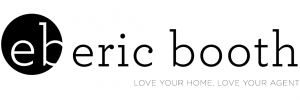5 Things to Have Ready When You Apply for a Mortgage
If you’re a serious home buyer, popping into the latest open houses shouldn’t be at the top of your to-do list. The very first thing you should be doing in your home buying journey is to apply for a mortgage. But why? Well, there are many ways in which this meeting will benefit your search and your overall ability to even purchase a home, as it all starts with the pre-approval letter.
When you go to apply for a mortgage, you’ll be able to discuss budgeting and loan options, including the maximum you can borrow. They’ll also be able to check your credit and alert you to any problems that might prohibit you from even obtaining a loan in the first place. But most importantly, a lender will help you secure a vital pre-approval letter which plays a huge role in the negotiation process between buyer and seller, as it is proof that you’re not only serious but can obtain the necessary financing for the transaction.
So, what exactly do you need to have ready in order to get pre-approved for a mortgage? These are the five things you will need to start the process:
- Identification – Your lender will need a copy of your driver’s license or ID, your Social Security number, as well as your signature to allow them to pull your credit score.
- Proof of Income – Be prepared to provide W2 statements from the past two years, recent pay stubs that show income as well as your year-to-date income, your two most recent years of tax returns, and proof of additional income (e.g. bonuses, alimony, etc.).
- Employment Verification – Just supplying your pay stubs won’t be enough. You’ll also need employment verification, and usually this means contacting your employer to check that you’re still employed and that your salary matches what’s listed. If you changed employers in the last year or so, a lender may also contact your previous employer to verify information. All of this is to ensure that you are essentially the safe bet, as they only want to lend to borrowers who can prove stability.
- Proof of Assets – In addition to proving your income, you’re also going to need to show proof of all assets. This includes presenting bank statements and investment account statements as well as cash reserves. All of this proves that you have the funds to meet closing costs and the down payment.
- Good Credit – Most lenders require a FICO score of 620 or higher to approve conventional loans. Some even require that for an FHA loan. The lowest interest rates are generally reserved for those with credit scores of 760 and above, so the better your score, the lower your down payment will be.
Once all of your gathered, required documentation has been put together for your lender, and you’ve obtained pre-approval, then it’s time to look at and apply for the best mortgage rates in your area. By going through this process long before you even start looking at homes, you’ll save yourself a lot of stress and heartache later because you’ll be fully prepared to simply shop and make an offer on your dream home.










